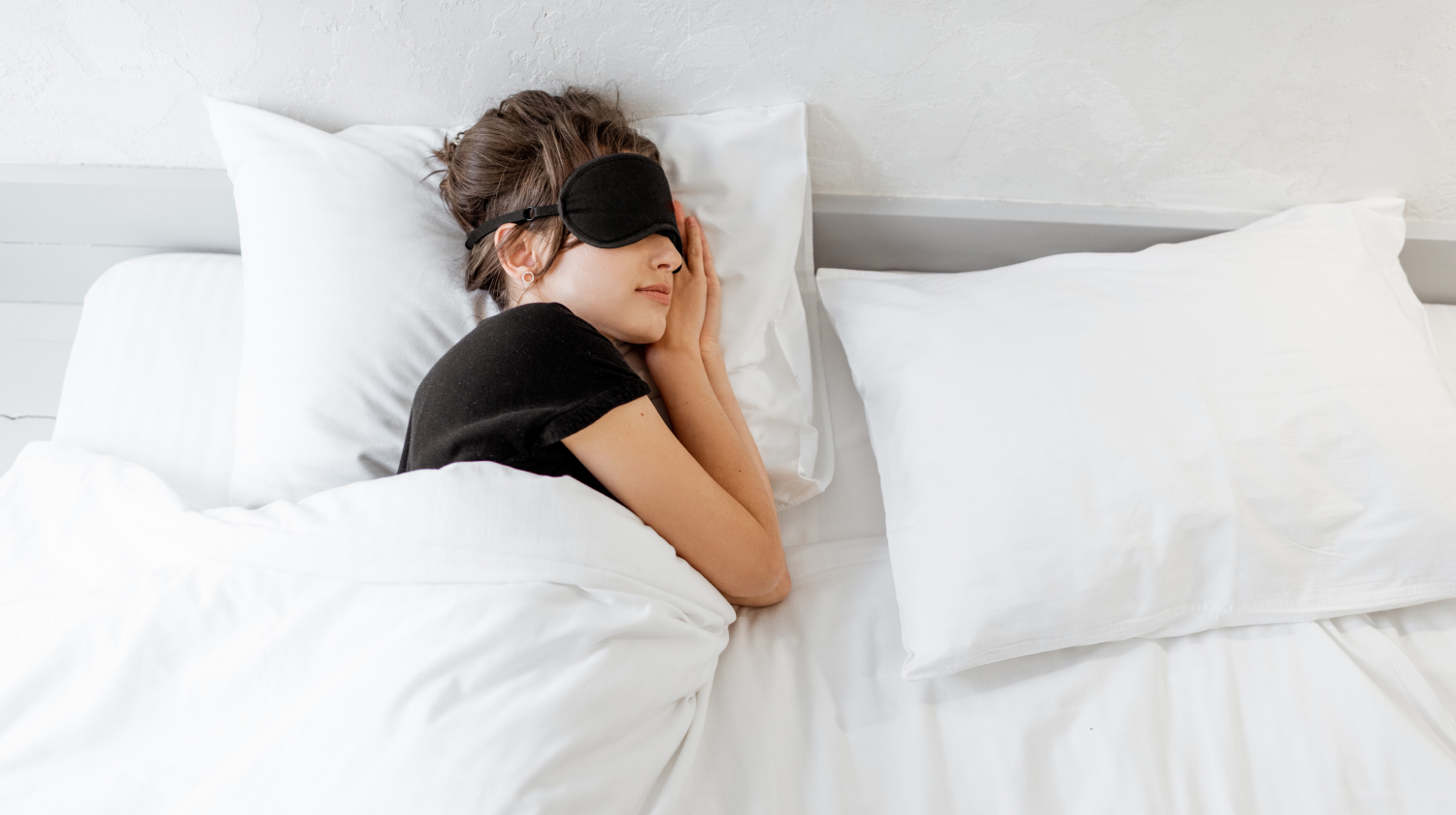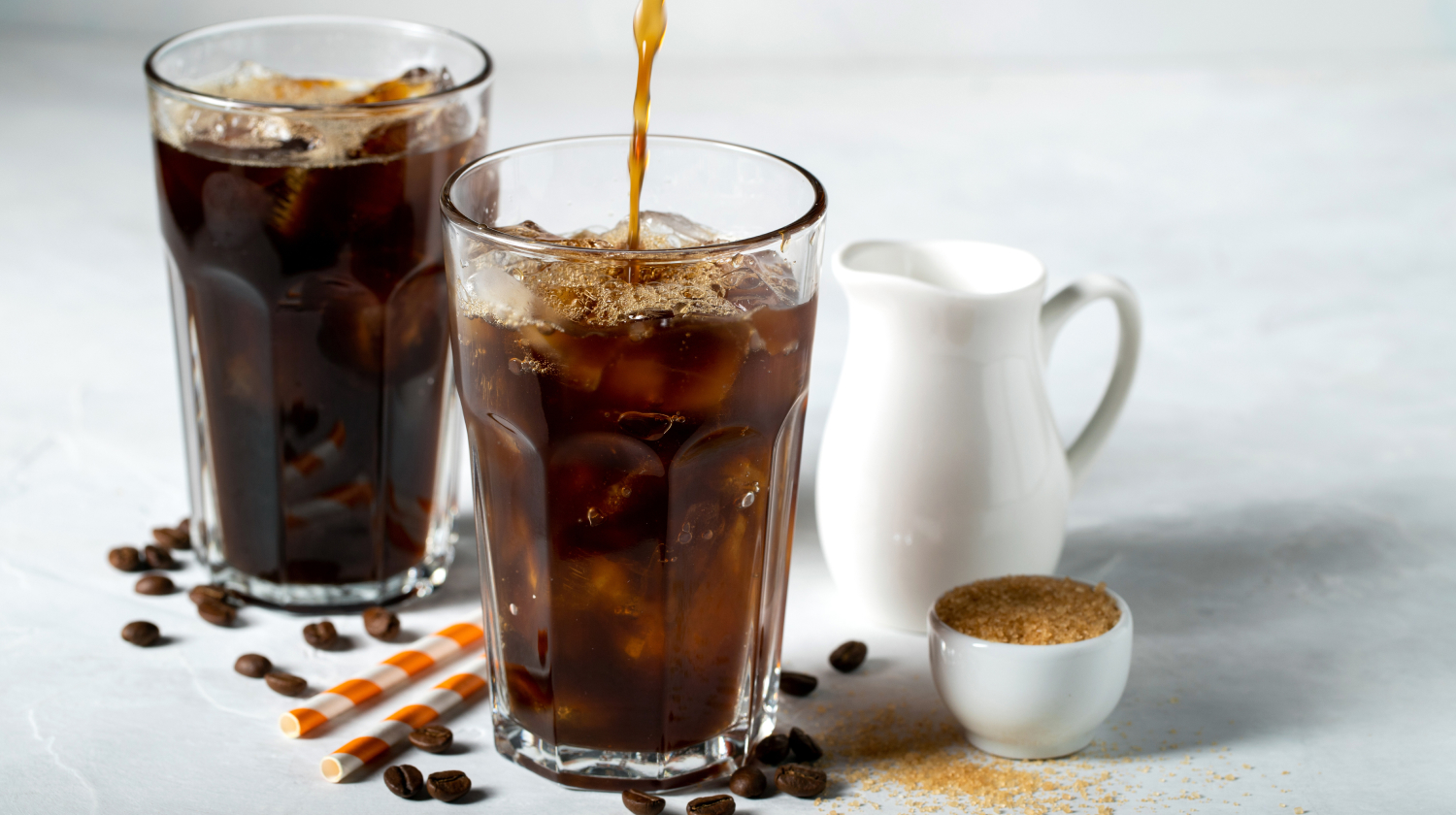How To Not Be Nervous: 10 Useful Ways You May Not Know 2024

You might have come across this article because you have a driving test tomorrow, a huge exam in the morning, or a major presentation to deliver in an hour or two. If so, we know the feeling! We know that these kinds of panic-inducing scenarios can fill anyone with dread.
And don’t get us started on those oh-too-predictable unwanted symptoms like clammy hands, a hammering heart rate, and sweating!
The great news? There are great coping strategies that you can learn to feel way more relaxed. That’s why in this article, we’ve curated our ten top scientifically-proven tips for feeling calmer and more in control in any anxiety-provoking situation.
We’ll explain how coping strategies can help you to effectively handle nervousness, stress, anxiety, and even depression — and when it’s the right time to seek professional help.
How To Stop Being Nervous?
In this article, we’ll discover how not to be nervous! Find out why our fight-or-flight system makes us feel nervous and why common nerve-inducing events like public speaking, driving tests, going on a date, and even sex can make us feel stressed. We’ll then share our top, scientifically-proven tips to stop feeling nervous, anxious, or stressed, which are: spending more time in nature, exercising, getting more sleep, talking to someone, avoiding caffeine, sugar, and alcohol, drinking more water, taking vitamins and minerals, practicing mindful breathing and meditation, and embracing your natural instincts! Finally, we discuss when you should seek professional help.
Why Do We Feel Nervous?
So why do we feel nervous? Well, the nerves you feel when facing a scary situation are actually your highly-evolved vertebrate stress response[1] kicking into high gear. Its function? To help us survive.
Nerves can hit us all in different scenarios, but when they do, our stress response is largely the same. For some of us, it might be driving anxiety[2] (where you feel nervous behind the wheel or sick with nerves at the thought of a driving test!). For others, it could be a fear of public speaking (officially known as glossophobia,[3] e.g., nerves over delivering a presentation).
Maybe performance anxiety[4] has hit you, inhibiting sexual performance (in the bedroom), workplace performance (in a job interview), or even academic performance (in an exam).
But in any of those different scenarios, your stress response will rapidly engage in exactly the same way. First, your ‘fight-or-flight’ response will cause the immediate release of the catecholamines epinephrine (adrenaline) and norepinephrine (noradrenaline).
You’ll immediately feel their effects — a rapidly elevated heart rate, shallow breathing, clammy hands, indigestion, a sudden urge to pee,[5] and fingers that tremble. Your pupils dilate, and your skin may even blush an embarrassing red. This phase is essential to help you fight or run in the face of a threat.
The second phase is a slower release of cortisol, a corticosteroid, from our adrenal glands, which is designed to help you maintain hypervigilance to that same threat. This stress response is designed to rapidly restore homeostasis,[6] or balance, to your body as quickly as possible.
Stress In The Modern World
This stress response is an evolutionary trait best suited to our days of living in harsher natural environments. However, these days, our stress is less ‘fight-or-flight’ oriented. So when a major public speaking moment fills us with fear, adrenaline courses through our veins to help us fight.
But with nothing truly dangerous to fight (or run from), we have no outlet to use up those hormones. The result? We feel shaky, nervous, hypervigilant, and, often, impotent, which can lead to our performance suffering.
But here’s the good news. If nerves are getting in the way of your ability to perform, there are certainly a lot of actions that you can take to stop nerves in their tracks — and feel in control again. Read on to discover how!
We’re going to take a look at the power of nature and exercise and why you need to prioritize sleep. Then we’ll discuss the effects of talking to a loved one, why you should swap out caffeine, sugar, and alcohol for water, and healthy foods and supplements to beat your nerves.
Finally, we’ll explain why breathing techniques, meditation, and embracing your natural instincts can help you to feel calm, cool, and collected anywhere you are.
10 Ways To Not Be Nervous
Here are our top ten go-to tips for dealing with nervous feelings! Many of these can be practiced in the moment, while some are longer-term strategies. All are scientifically proven to help.
Spend More Time In Nature

Feeling nervous? Head outside! Research tells us that spending even a short time in nature exerts a powerful effect[7] on our mental health, which means fewer attacks of nervousness and a calmer outlook. So if you’re feeling nervous before an interview, head out for an energizing jaunt around your local park first.
Exercise Regularly

Do you ever head out to the park or the beach for a brisk walk to clear your head? One reason why this strategy is such a great one is that it combines two major stress-busters[8] — nature and physical activity. In fact, even one bout of exercise in nature has been shown to create long-term benefits[9] on stress levels!
Getting Enough Sleep

The link between anxiety levels and sleep deprivation[10] has been widely recognized in scientific literature. Further, individuals with depression have been observed to display worse symptoms[11] in the presence of sleep deprivation.
Disrupted sleep is considered a powerful future indicator[12] of depression, partly because of its negative effects on emotional regulation. Aim for at least 7-8 hours of sleep a night, and establish a relaxing bedtime routine to help you fall asleep faster.
Talk To Someone

It is well documented that talking to someone if you feel troubled provides effective emotional relief.[13] The next time you are feeling nervous about a driving test, presentation, or exam, sit down with a trusted family member or friend and share a conversation about your worries.
And if someone comes to you for help, here’s how you can help them calm anxiety.
You Really Are What You Eat (And Drink!)
Avoid Caffeine, Alcohol, And Sugar

Did you know that sugar intake has been linked to[14] anxiety and depression? Similarly, caffeine has long been associated[15] with the onset and worsening of various psychiatric conditions. Alcohol is also well recognized as a cause of[16] emotional dysregulation, negative thinking and anxiety, and depression.
Drink More Water

In contrast to drinking alcohol, water can have a surprisingly powerful and positive effect on lowering anxiety. Dehydration has been found to have a negative effect on mood[17] and increase[18] anxiety.
Eat Your Vitamins And Minerals!

A randomized 2017 controlled study reports that a Mediterranean-style diet[19] supplemented with fish oils improves symptoms of depression. A healthy diet,[20] in general, is also associated with lower risks of depression.
Omega-3 supplements[21] have been observed to lower anxiety symptoms, while a four-week study[21] of vitamin and mineral supplementation reported significant improvement in the emotional mood of teenagers.
The Power Of Mindfulness
Mindful Breathing

Breathing techniques[22] and breathing exercises have been shown to help us relax, lower blood pressure, and mediate physical symptoms of stress.
The positive stress-lowering effects[23] of deep breathing have consequently been suggested as first-line, and adjunct, treatments for stress, anxiety, and depression, with diaphragmatic breathing relaxation training[24] resulting in improvements in anxiety.
Anxiety can also disrupt breathing,[25] so taking a few deep breaths can help us if we’re having a particularly hard time. Studies show that practicing deep breathing can even improve[26] decision-making!
Meditate

Mindfulness-based interventions,[27] such as meditation used in a workplace setting or via a smartphone app,[28] positively improve stress levels. That means that you can practice mindfulness and meditation in your office — and on the go — and experience a powerful mood boost!
While your fight-or-flight response powers up your sympathetic nervous system (boosting energy), meditation and mindful breathing both effectively stimulate your parasympathetic nervous system.[29] The result? A more relaxed, calmer, and less nervous state.
Embrace Your Natural Instincts (The Fight-Or-Flight Response Is Natural)

While we usually view the side effects of our stress response as inconvenient, annoying, or even stress-inducing, it is important to reframe those negative thoughts. Instead of being negative, recognize it for what it really is — a positive response (by your body and brain) to try to help and protect you. The question ultimately isn’t how to not get nervous but how to embrace the symptoms you experience — then engage with them positively.
The takeaway? If you want to feel less nervous before a big date, in the bedroom, or around your crush, engage in mindful breathing and meditative techniques to calm your mind and reduce performance anxiety.
Presentation nerves? Embrace your natural instincts because what you are experiencing is perfectly normal (and healthy). Use these feelings to drive you into action and motivate you. Head out for a brisk walk before the big moment, then stride into that room, feeling more in control.
When To See A Doctor
Anxiety is the most common mental health condition in the US, with the CDC reporting in February 2021 that over 41% of adults[30] have recently experienced symptoms of a depressive or anxiety disorder. While we are all affected by nerves at one point or other, feeling nervous shouldn’t disrupt your normal functioning or enjoyment of life.
If you feel as if your nerves might have escalated past that point, you should seek professional help, as it could be a symptom of stress, anxiety, or a depressive disorder or condition. We advise in these situations that, you contact your doctor immediately.
There are also many regulated therapists who can help you, either online or in person.
The Bottom Line
When it comes down to it, we’ve all experienced butterflies in the pit of our stomachs when we unexpectedly bumped into our crush at the mall. And who hasn’t fumbled the first few lines of a big presentation or messed up a reverse park on our driving test after executing it perfectly a hundred times before?
The bottom line is that messing up and feeling nervous sometimes are part of what makes us human. And that’s okay!
What isn’t okay is to suffer in silence if you feel that nerves or anxiety have begun to disrupt your enjoyment of life. That’s why you should always reach out to talk to a friend or professional if you need to or try out the coping strategies listed in this article. That way, you’ll feel more in control — no matter what life throws at you!
+ 30 sources
Health Canal avoids using tertiary references. We have strict sourcing guidelines and rely on peer-reviewed studies, academic researches from medical associations and institutions. To ensure the accuracy of articles in Health Canal, you can read more about the editorial process here
- Romero, L.M. and Gormally, B.M.G. (2019). How Truly Conserved Is the ‘Well-Conserved’ Vertebrate Stress Response?. Integrative and Comparative Biology, [online] 59(2), pp.273–281. Available at: https://academic.oup.com/icb/article/59/2/273/5419679?login=false
- Anxiety, Stress, & Coping. (2021). Cognitive and body manifestations of driving anxiety according to different onsets. [online] Available at: https://www.tandfonline.com/doi/abs/10.1080/10615806.2021.1931144
- Dansieh, S.A., Owusu, E. and Seidu, G.A. (2021). Glossophobia: The Fear of Public Speaking in ESL Students in Ghana. Language Teaching, [online] 1(1), p.p22. Available at: https://j.ideasspread.org/index.php/lt/article/view/845
- Rowland, D.L. and van Lankveld, J.J.D.M. (2019). Anxiety and Performance in Sex, Sport, and Stage: Identifying Common Ground. Frontiers in Psychology, [online] 10. Available at: https://www.frontiersin.org/articles/10.3389/fpsyg.2019.01615/full
- Shimizu, T., Shimizu, S., Higashi, Y. and Saito, M. (2021). Psychological/mental stress‐induced effects on urinary function: Possible brain molecules related to psychological/mental stress‐induced effects on urinary function. International Journal of Urology, [online] 28(11), pp.1093–1104. Available at: https://onlinelibrary.wiley.com/doi/full/10.1111/iju.14663
- Davies, K.J.A. (2016). Adaptive homeostasis. Molecular Aspects of Medicine, [online] 49, pp.1–7. Available at: https://www.sciencedirect.com/science/article/pii/S0098299716300231
- Mackintosh, Chris; Zehndorfer, Elesa and Darko, Natalie (2016). Outdoor Recreation as a Potential Lever for
Health Improvement: A Review of the Health Benefits, Barriers and Opportunities for the Sector. Metropolitan
University Business School, Manchester. - Lawton, E., Brymer, E., Clough, P. and Denovan, A. (2017). The Relationship between the Physical Activity Environment, Nature Relatedness, Anxiety, and the Psychological Well-being Benefits of Regular Exercisers. Frontiers in Psychology, [online] 8. Available at: https://www.frontiersin.org/articles/10.3389/fpsyg.2017.01058/full
- Takayama, N., Korpela, K., Lee, J., Morikawa, T., Tsunetsugu, Y., Park, B.-J., Li, Q., Tyrväinen, L., Miyazaki, Y. and Kagawa, T. (2014). Emotional, Restorative and Vitalizing Effects of Forest and Urban Environments at Four Sites in Japan. International Journal of Environmental Research and Public Health, [online] 11(7), pp.7207–7230. Available at: https://www.mdpi.com/1660-4601/11/7/7207
- Pires, G.N., Bezerra, A.G., Tufik, S. and Andersen, M.L. (2016). Effects of acute sleep deprivation on state anxiety levels: a systematic review and meta-analysis. Sleep Medicine, [online] 24, pp.109–118. Available at: https://www.sciencedirect.com/science/article/abs/pii/S1389945716301368
- Nyer, M., Farabaugh, A., Fehling, K., Soskin, D., Holt, D., Papakostas, G.I., Pedrelli, P., Fava, M., Pisoni, A., Vitolo, O. and Mischoulon, D. (2013). RELATIONSHIP BETWEEN SLEEP DISTURBANCE AND DEPRESSION, ANXIETY, AND FUNCTIONING IN COLLEGE STUDENTS. Depression and Anxiety, [online] 30(9), pp.873–880. Available at: https://onlinelibrary.wiley.com/doi/abs/10.1002/da.22064
- Cognition and Emotion. (2017). Why might poor sleep quality lead to depression? A role for emotion regulation. [online] Available at: https://www.tandfonline.com/doi/abs/10.1080/02699931.2016.1247035
- Lutz, G., Scheffer, C., Edelhaeuser, F., Tauschel, D. and Neumann, M. (2013). A reflective practice intervention for professional development, reduced stress and improved patient care—A qualitative developmental evaluation. Patient Education and Counseling, [online] 92(3), pp.337–345. Available at: https://www.sciencedirect.com/science/article/abs/pii/S0738399113001298
- Jacques, A., Chaaya, N., Beecher, K., Ali, S.A., Belmer, A. and Bartlett, S. (2019). The impact of sugar consumption on stress driven, emotional and addictive behaviors. Neuroscience & Biobehavioral Reviews, [online] 103, pp.178–199. Available at: https://www.sciencedirect.com/science/article/pii/S0149763418308613
- Wang, H.R., Woo, Y.S. and Bahk, W.-M. (2015). Caffeine-induced psychiatric manifestations. International Clinical Psychopharmacology, [online] 30(4), pp.179–182. Available at: https://journals.lww.com/intclinpsychopharm/Abstract/2015/07000/Caffeine_induced_psychiatric_manifestations__a.1.aspx
- Tellez-Monnery, K., Berghoff, C.R. and McDermott, M.J. (2023). Investigating the effects of emotion dysregulation and repetitive negative thinking on alcohol hangover anxiety and depression. Addictive Behaviors, [online] 140, p.107619. Available at: https://www.sciencedirect.com/science/article/abs/pii/S030646032300014X
- Suh, H., Lieberman, H.R., Jansen, L.T., Colburn, A.T., Adams, J.D., Seal, A.D., Butts, C.L., Kirkland, T.M., Melander, O., Vanhaecke, T., Dolci, A., Lemetais, G., Perrier, E.T. and Kavouras, S.A. (2020). Cellular dehydration acutely degrades mood mainly in women: a counterbalanced, crossover trial. British Journal of Nutrition, [online] 125(10), pp.1092–1100. Available at: https://www.cambridge.org/core/journals/british-journal-of-nutrition/article/cellular-dehydration-acutely-degrades-mood-mainly-in-women-a-counterbalanced-crossover-trial/B3026BF92E2138D4200DFB182858AB52
- Young, H.A., Cousins, A., Johnston, S., Fletcher, J.M. and Benton, D. (2019). Autonomic adaptations mediate the effect of hydration on brain functioning and mood: Evidence from two randomized controlled trials. Scientific Reports, [online] 9(1). Available at: https://www.nature.com/articles/s41598-019-52775-5
- Nutritional Neuroscience. (2019). A Mediterranean-style dietary intervention supplemented with fish oil improves diet quality and mental health in people with depression: A randomized controlled trial (HELFIMED). [online] Available at: https://www.tandfonline.com/doi/full/10.1080/1028415X.2017.1411320?src=recsys
- Lai, J.S., Hiles, S., Bisquera, A., Hure, A.J., McEvoy, M. and Attia, J. (2014). A systematic review and meta-analysis of dietary patterns and depression in community-dwelling adults,,. The American Journal of Clinical Nutrition, [online] 99(1), pp.181–197. Available at: https://academic.oup.com/ajcn/article/99/1/181/4577292
- Su, K.-P., Tseng, P.-T., Lin, P.-Y., Okubo, R., Chen, T.-Y., Chen, Y.-W. and Matsuoka, Y.J. (2018). Association of Use of Omega-3 Polyunsaturated Fatty Acids With Changes in Severity of Anxiety Symptoms. JAMA Network Open, [online] 1(5), p.e182327. Available at: https://jamanetwork.com/journals/jamanetworkopen/article-abstract/2702216
- Jerath, R., Crawford, M.W., Barnes, V.A. and Harden, K. (2015). Self-Regulation of Breathing as a Primary Treatment for Anxiety. Applied Psychophysiology and Biofeedback, [online] 40(2), pp.107–115. Available at: https://link.springer.com/article/10.1007/s10484-015-9279-8
- Cho, H., Ryu, S., Noh, J. and Lee, J. (2016). The Effectiveness of Daily Mindful Breathing Practices on Test Anxiety of Students. PLOS ONE, [online] 11(10), p.e0164822. Available at: https://journals.plos.org/plosone/article?id=10.1371/journal.pone.0164822
- Chen, Y.-F., Huang, X.-Y., Chien, C.-H. and Cheng, J.-F. (2016). The Effectiveness of Diaphragmatic Breathing Relaxation Training for Reducing Anxiety. Perspectives in Psychiatric Care, [online] 53(4), pp.329–336. Available at: https://onlinelibrary.wiley.com/doi/abs/10.1111/ppc.12184
- Paulus, M.P. (2013). THE BREATHING CONUNDRUM-INTEROCEPTIVE SENSITIVITY AND ANXIETY. Depression and Anxiety, [online] 30(4), pp.315–320. Available at: https://onlinelibrary.wiley.com/doi/abs/10.1002/da.22076
- De Couck, M., Caers, R., Musch, L., Fliegauf, J., Giangreco, A. and Gidron, Y. (2019). How breathing can help you make better decisions: Two studies on the effects of breathing patterns on heart rate variability and decision-making in business cases. International Journal of Psychophysiology, [online] 139, pp.1–9. Available at: https://www.sciencedirect.com/science/article/abs/pii/S0167876018303258
- Heckenberg, R.A., Eddy, P., Kent, S. and Wright, B.J. (2018). Do workplace-based mindfulness meditation programs improve physiological indices of stress? A systematic review and meta-analysis. Journal of Psychosomatic Research, [online] 114, pp.62–71. Available at: https://www.sciencedirect.com/science/article/abs/pii/S0022399918305749
- Apa.org. (2023). APA PsycNet. [online] Available at: https://psycnet.apa.org/doiLanding?doi=10.1037%2Focp0000118
- Kenney, M.J. and Ganta, C.K. (2014). Autonomic Nervous System and Immune System Interactions. Comprehensive Physiology, [online] pp.1177–1200. Available at: https://www.ncbi.nlm.nih.gov/pmc/articles/PMC4374437/
- Vahratian, A., Blumberg, S.J., Terlizzi, E.P. and Schiller, J.S. (2021). Symptoms of Anxiety or Depressive Disorder and Use of Mental Health Care Among Adults During the COVID-19 Pandemic — United States, August 2020–February 2021. MMWR. Morbidity and Mortality Weekly Report, [online] 70(13), pp.490–494. Available at: https://www.cdc.gov/mmwr/volumes/70/wr/mm7013e2.htm



